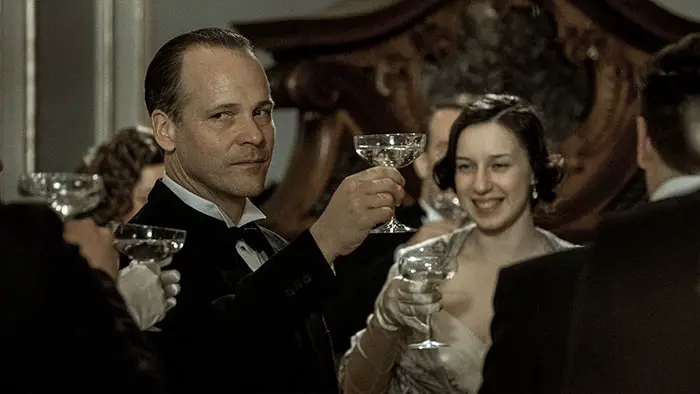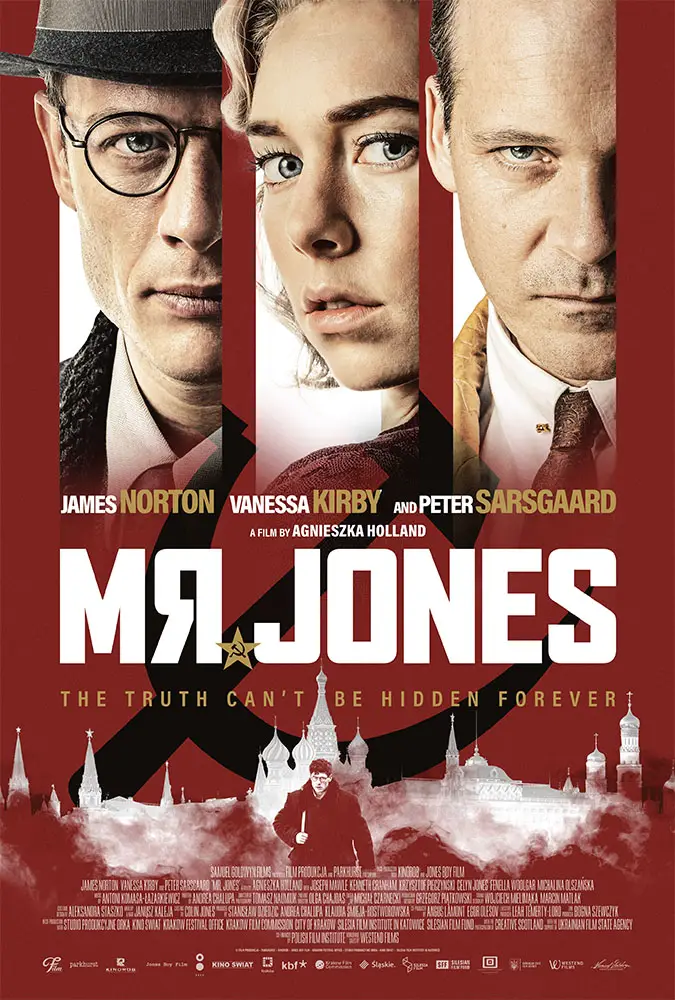
When Jones meets with a Russian official and presses hard about Ukraine, he offers to take Jones on a publicity tour of Ukraine to show him there’s nothing wrong other than a country going through a typical famine. On the train there, Jones secretly leaves the train to discover the real truth about Russia’s intervention into the affairs of Ukraine. Jones’ disappearance is the most gripping part of the film.
In the end, Mr. Jones is not only an account of Russia’s decimation and literal raping of Ukrainian resources but of the oppressive political influence, Russia has on its narrative to the world. Jones’ real plan is discovered by the Kremlin, and when you control the narrative, you can easily hide the truth. There’s an all-out media blitz in England to discredit Jones’ story.
Mr. Jones is essentially an indictment of Stalin’s communism. Throughout Jones’ adventure, the film cuts to Orwell and his voiceovers as he writes new passages illustrating the vile acts of communism and its attempt to hold and build power on the backs of its people in the guise of a working farm. This is the point when all hell breaks loose in a verbal battle of the dangers v benefits of socialism—not in the movie, but with your friends watching this film.

“Adding to the bleakness is Tomasz Naumiuk’s cinematography.”
Political agenda aside, this is still a movie. Mr. Jones plods on at a slow, bleak pace. While I like my spy thriller to have a little bit more energy, Mr. Jones reveals enough intrigue throughout the film to make it interesting to watch. What he discovers in Ukraine is horrifying—almost a precursor to the eventual German atrocities. The end of Gareth Jones’ journey is heart-breaking as well.
James Norton portrays Mr. Jones as an observer and, like a good journalist, willingly puts his life in danger for the story, especially when he has no publication funding his journey. Peter Sarsgaard gives us his standard creepy performance of the capitalist in league with Russia. Vanessa Kirby is compelling too, though not as meaty a role as one would hope.
Adding to the bleakness is Tomasz Naumiuk’s cinematography. The color palette is dark and cold. When Jones is in Ukraine, color has been sucked out, leaving this section almost entirely black and white. It’s an interesting choice for sure in building the visual tone and themes of the film.
Mr. Jones is not necessarily the kind of film I go out of my way to see. What I liked about it was a story I never knew before about a period of history I knew nothing about, and introduced not only Mr. Jones—a man as obscure as his name, but also the inspiration of George Orwell. If this sounds interesting to you, you’re going to like Mr. Jones. Also, consider watching it as a way to challenge one’s love of socialism. It couldn’t hurt.

"…it was a story I never knew before about a period of history I knew nothing about…"
